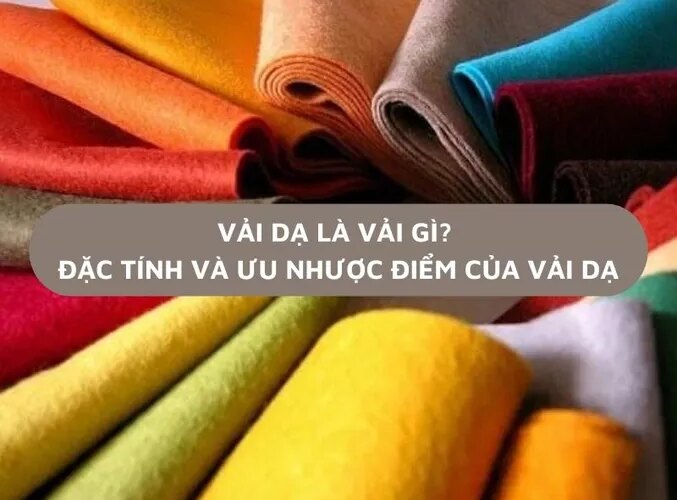Felt is a popular material for winter, but what is felt fabric? Learn about its pros, cons, and usage. Follow along with Fashion Bandung’s guide.
What is felt fabric?
In the 16th century, the people of Wales invented a unique kind of fabric made from sheep’s wool. This fabric, known as felt fabric, was specifically designed to replace their conventional woolen clothing. The Welsh utilized this fabric to create various garments such as petticoats, children’s coats, and winter blankets. Not only did this felt fabric provide exceptional warmth, but it also offered versatility in terms of fashion. Its ability to be crafted into different styles of clothing made it highly fashionable among the Welsh population. Consequently, during the severe winters of Europe, the popularity of this fabric soared to unprecedented levels.
During the 19th century, felt was introduced to the United States through imports. The material gained immediate popularity in the country, particularly within the garment industry where it found widespread use. As time has progressed, the popularity of felt has extended beyond the United States and has become a favored material in various countries across the globe, including Vietnam.
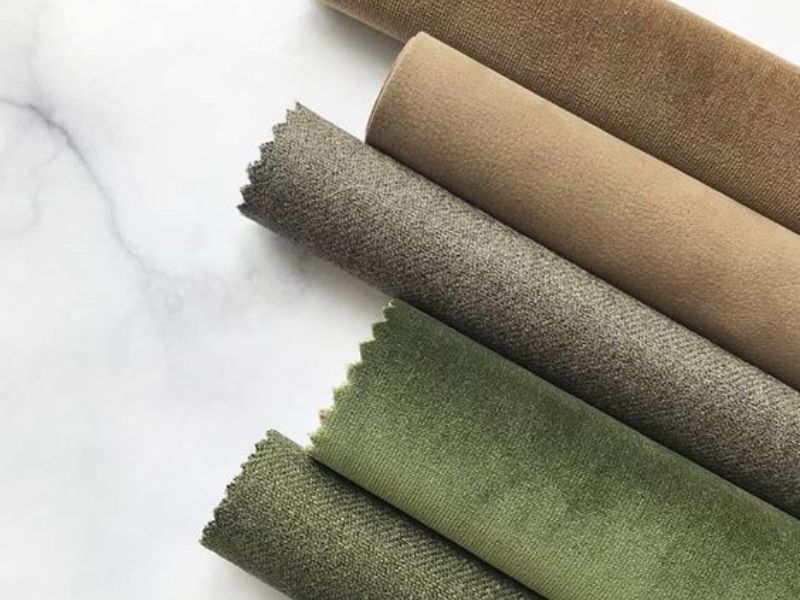
Felt is a versatile fabric that is typically created from wool fibers, but can also be made from cotton or synthetic materials. It undergoes a unique manufacturing process where the fibers are matted and compressed together to form a dense and durable material. Due to its composition, felt exhibits excellent insulating properties and is often used for a wide range of applications, including crafts, clothing, and industrial purposes. With its soft and fuzzy texture, felt is favored for its ability to provide warmth, comfort, and aesthetic appeal.
Felt is a type of fabric that is primarily made from wool, cotton, or synthetic fibers. These fibers are carefully woven together to create a dense, soft, and insulating material. Felt is considered a natural fabric, which is produced through a process of annealing, condensing, and pressing fibers like cotton, jute, sedge, or synthetic options such as polyester.
Felt is a versatile material that finds widespread use in various industries. In the realm of fashion, it is commonly employed to create coats, winter clothing, hats, scarves, and other garments. It is also utilized in other sectors such as furniture, toys, and decoration. It is important to note that the composition of felt can vary, leading to the classification of different types of felt. Therefore, it is advisable to familiarize yourself with these variations before purchasing, ensuring that you choose the most suitable type to meet your specific requirements.
4 most popular felt fabrics
Felt, wool
Felt is a type of fabric that is manufactured using polyester or acrylic fibers. It possesses several notable characteristics, including excellent heat retention, water resistance, a plush layer of fur on its surface, and a wide range of colors and patterns. Due to these qualities, felt is highly versatile and finds application in various industries. It is commonly used in the production of greeting cards, collages, and decorative flowers. Additionally, it is making waves in the fashion industry as a popular choice for stylish outerwear designs.
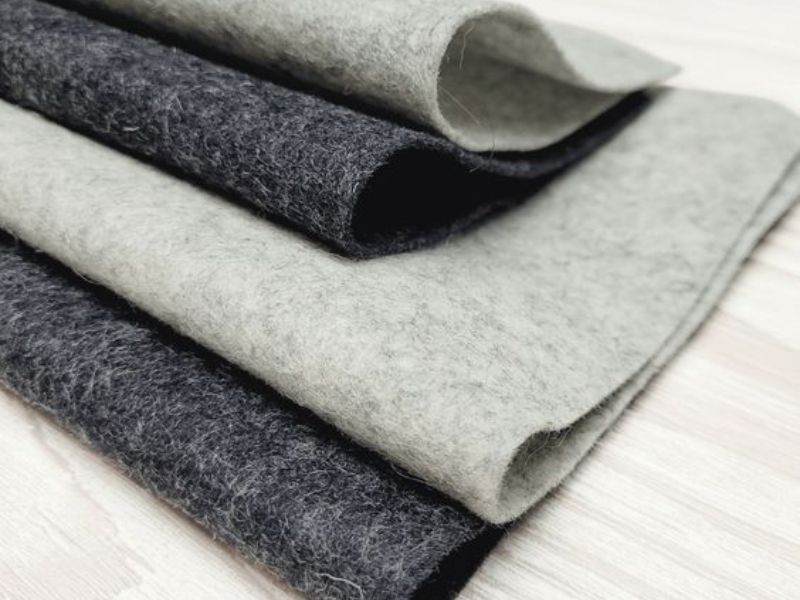
Felt is a type of fabric that is manufactured using synthetic fibers, specifically polyester or acrylic.
Felt fabric
Wool felt gets its name from the fact that it is made from sheep wool. This material is known for its strong environmental credentials and its ability to provide excellent protection for the skin. Prior to being woven into large sheets, the wool undergoes a meticulous classification and inspection process by the manufacturer. In addition, advanced weaving techniques are employed during the production process to ensure the creation of high-quality and visually appealing wool felt sheets.
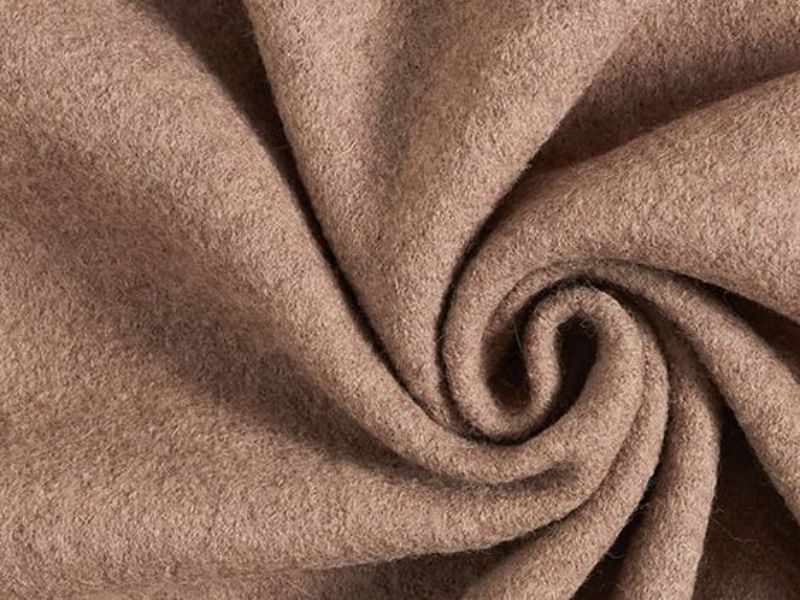
Felt fabric is a type of textile material that is produced by using the wool of sheep as its main component.
Fleece fabric is known for its luxurious softness and smooth texture. It has excellent stretch and elasticity, providing a comfortable fit and allowing for freedom of movement. Unlike some other fabrics, fleece does not cause itching or irritation on the skin, making it suitable for individuals with sensitive skin. Additionally, fleece has low absorbency, meaning it does not easily soak up moisture, and it has excellent heat retention properties, keeping the wearer warm even in colder temperatures. However, due to its desirable characteristics, fleece fabric tends to be priced higher than other fabrics.
Text felt fabric
Textile felt is a type of fabric that is crafted using materials such as cotton, jute, sedge, or synthetic fibers. These fibers are compacted together to create a dense, sturdy, and non-elastic fabric. Textile felt is commonly employed in the production of winter apparel, including coats, dresses, skirts, trousers, and jackets.
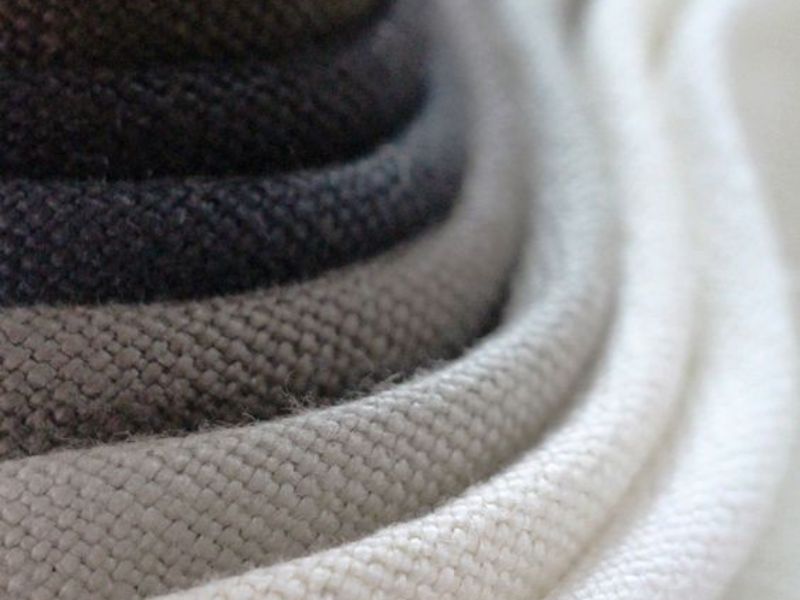
Text felt is a type of fabric that is manufactured using materials such as cotton, jute, sedge, or synthetic fibers.
Tweed fabric
Tweed is a type of fabric that is made by weaving wool, typically sourced from sheep, into a patterned twill or plain weave. The texture of tweed is known to be dry and rough, but it has a more tightly woven structure compared to regular cotton or wool fabrics.
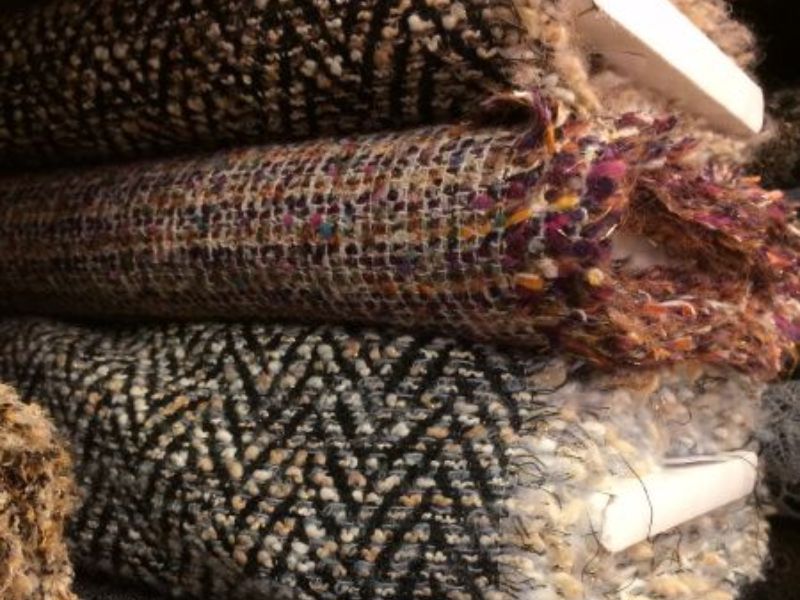
Tweed is a type of textile that is made by weaving wool fibers together.
This particular fabric possesses excellent waterproofing capabilities and provides optimal warmth, making it highly favored among users. It can be creatively blended with either Cashmere or Mohair fabric to craft truly distinctive fashion pieces. Nevertheless, due to its relatively high cost, Tweed fabric is predominantly utilized in the luxury fashion market.
What are the pros and cons of felt?
Advantage
- Felt fabric has a layer of fur pressed together, so the first outstanding advantage is that it has good heat retention, helping to keep the body warm in winter.
- Soft, light fabric, thick fibers, diverse colors to meet all user styles.
- Highly elastic, water-resistant, low shedding, no fraying and no dust accumulation
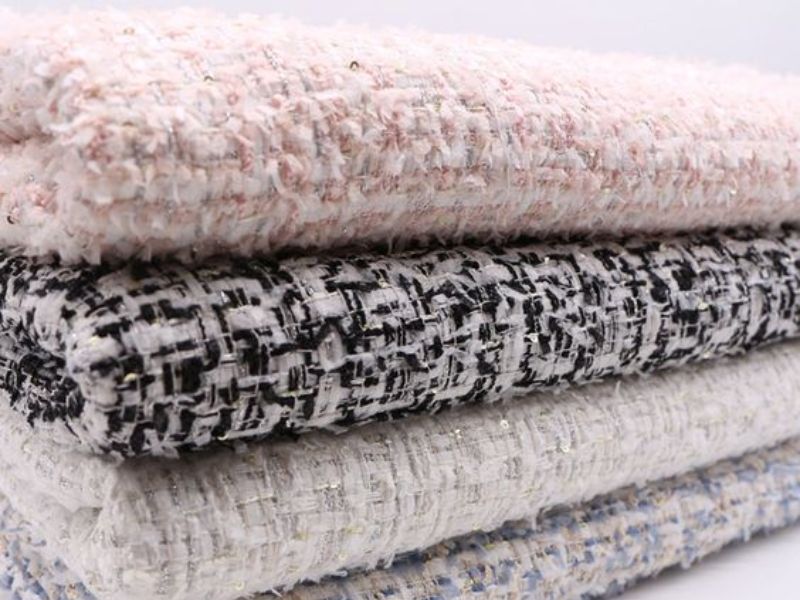
Felt fabric is known for its excellent ability to retain heat, making it an ideal material for keeping the body warm. Whether it’s used in clothing, blankets, or other thermal products, the inherent heat retention properties of felt provide a cozy and comfortable experience, shielding the body from cold temperatures. With felt fabric, you can stay snug and warm, even in chilly weather conditions.
Defect
In addition to its advantages, felt fabric also has certain drawbacks that should be taken into consideration.
- Prone to shrinkage at high temperatures
- When soaked in water, the fabric absorbs water quickly and becomes heavy, hindering the washing process.
- Because of its natural origin, it is often bitten by insects. Therefore, you should preserve it carefully to avoid unfortunate situations.
- Because it is a thick fabric, there are some limitations in the production process as well as mixing with other fabrics in design.
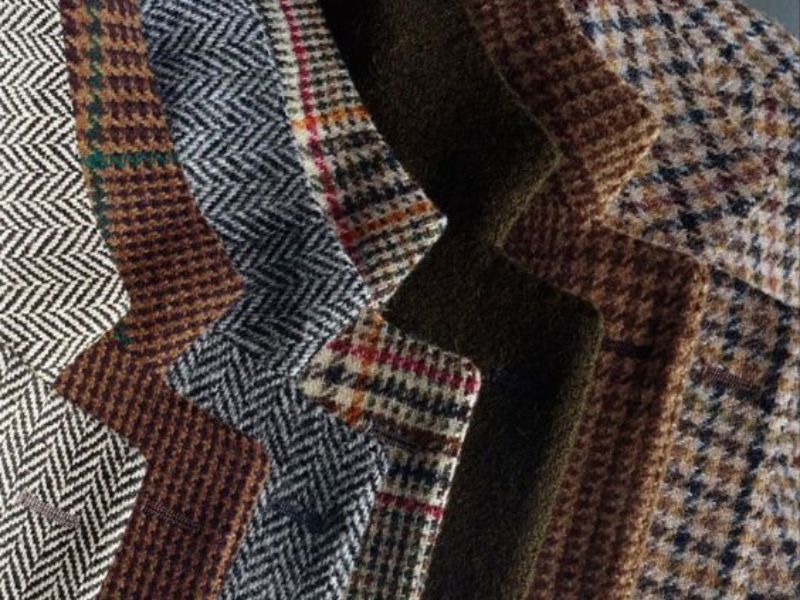
Felt fabric has a tendency to shrink when exposed to high temperatures, resulting in a reduction in its size.
Felt fabric is commonly used in clothing.
Felt is a versatile fabric that is commonly used in winter clothing to provide warmth. It has excellent heat retention properties, making it ideal for keeping the body warm in cold weather. Moreover, felt is highly durable and can withstand various environmental conditions. Fashion Bandung offers a range of fashionable items made from felt. Let’s explore some of these fashion pieces below.
Wool coat
Felt is widely recognized as the top-choice material when it comes to winter coats due to its exceptional qualities. It possesses the unique ability to provide warmth, while also offering a fashionable and long-lasting option for winter outerwear. Felt can be crafted into an extensive range of coat styles, ranging from full-length coats to those with shorter sleeves, all of which can be customized with various designs and colors to cater to individual preferences and fashion trends.

Felt is widely regarded as the top choice of material for manufacturing winter coats due to its immense popularity among consumers during the colder seasons.
Tweed dress/skirt
Wool dresses and skirts have gained significant popularity as fashionable winter attire. These items are preferred by many individuals due to their combined benefits of warmth and style. They serve as versatile clothing options suitable for various occasions.
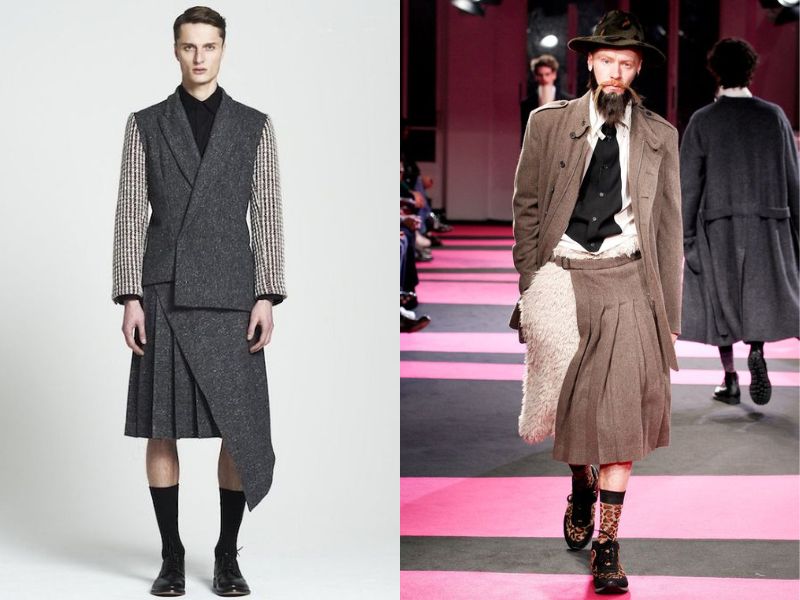
Many users prefer to wear dresses and skirts made of felt fabric.
Evening dresses typically feature a straightforward design consisting of a lengthy body and long sleeves. However, there are also evening dresses available with more intricate and embellished styles, such as flared, pleated, or mermaid evening dresses.
Wool pants
In addition to dresses and skirts, wool pants are also a highly sought-after fashion item during cold winter days. This is due to their remarkable warmth-retaining properties. However, it is not just their ability to keep the wearer warm that makes wool pants so popular. They also offer a high level of comfort and flexibility, allowing the wearer to move with ease. Wool pants are available in various styles, including straight-leg, wide-leg, and even jogger pants, providing a range of options to suit individual preferences.
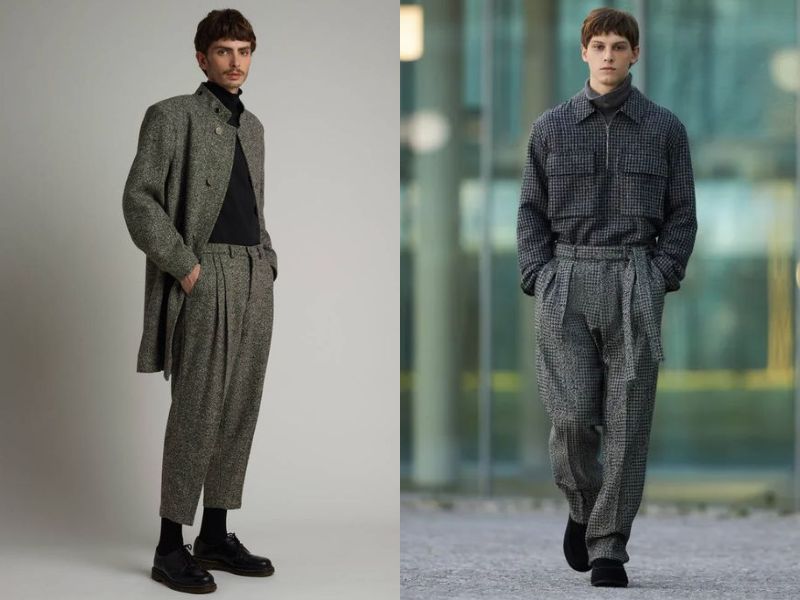
Felt pants have gained a lot of popularity among fashion enthusiasts and are now considered a highly sought-after fashion item. Whether it’s due to their unique texture or stylish appeal, these pants have become a trendsetter in the fashion industry. People love to wear felt pants as they not only provide comfort but also make a bold fashion statement. From casual outings to formal events, felt pants have become a versatile wardrobe staple that can be styled in various ways to create trendy and fashionable looks. Their popularity continues to grow as more and more people embrace the trendiness and uniqueness of felt pants.
Flannel pants offer versatility when it comes to outfit combinations. They can be paired with an array of tops including sweaters, shirts, or T-shirts, giving you various style options. Similarly, flannel pants can be matched with a variety of shoes, whether it be high heels, doll shoes, or sneakers, allowing you to create different looks for different occasions.
Hats, scarves, gloves
Felt is a versatile material that is not only used in crafts and home decor, but also has a place in the fashion industry. In addition to its traditional use in making hats, scarves, and gloves, felt is also utilized to create fashionable accessories such as bags and shoes. The unique properties of felt, including its insulating capabilities, make it an ideal choice for winter accessories that keep you warm in cold weather. Moreover, the luxurious texture and elegant appearance of felt add a touch of sophistication to any fashion piece it is used in.
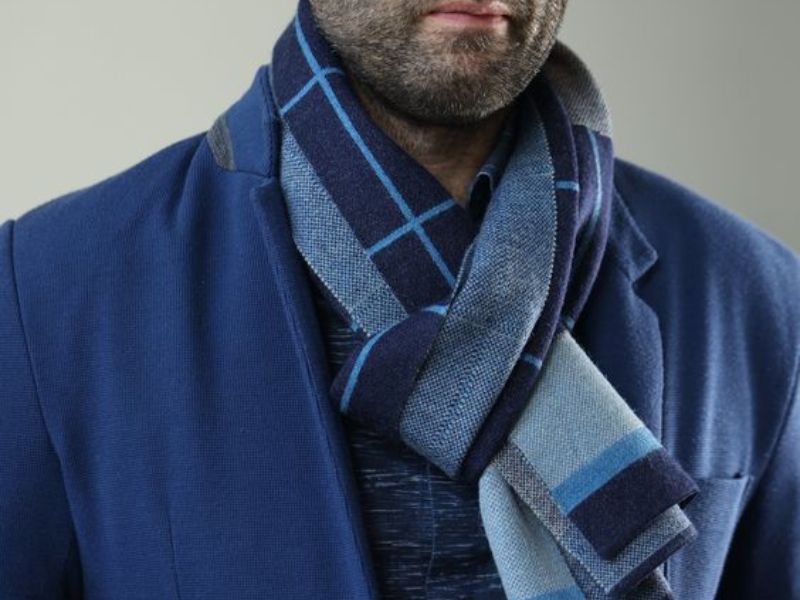
Felt is a versatile material that is commonly employed in the production of various fashion accessories such as hats, scarves, and gloves. The unique properties of felt make it suitable for creating these items, providing warmth, comfort, and a trendy look to the wearer.
What are the signs of high-quality felt fabric?
Felt fabric is highly recommended for individuals seeking an elegant and luxurious style, without compromising comfort and warmth. However, in order to obtain these attributes, it is essential to be aware of the following considerations to identify high-quality felt fabric and purchase a satisfying felt item.
Check the fabric surface
Good quality felt is characterized by a smooth and even surface, without any visible holes, and a soft and tactile sensation when touched. It should not have a fuzzy or uneven texture. To assess the quality, it is essential to utilize both the sense of touch and visual observation. By examining the felt with your hands and eyes, you can make a more precise evaluation. Moreover, good quality felt has a moderate thickness that strikes a balance, not being excessively thick or thin.
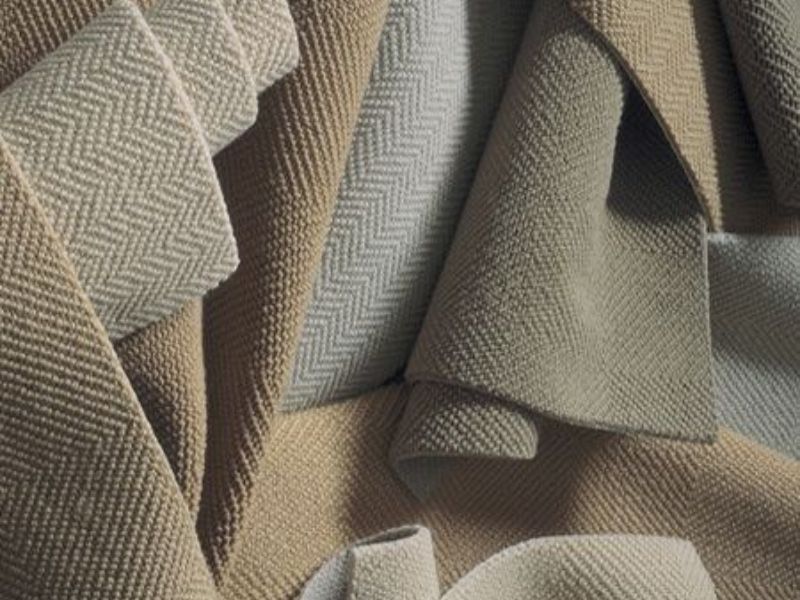
High-quality felt is characterized by its smooth surface with no visible holes or imperfections.
Elasticity test
To accurately assess the quality of felt fabric, a helpful method is to manually inspect its elasticity. This can be done by lightly tugging at the fabric’s surface using your hand. If the fabric displays a moderate level of elasticity, it indicates that it is of a superior quality with optimal elasticity.
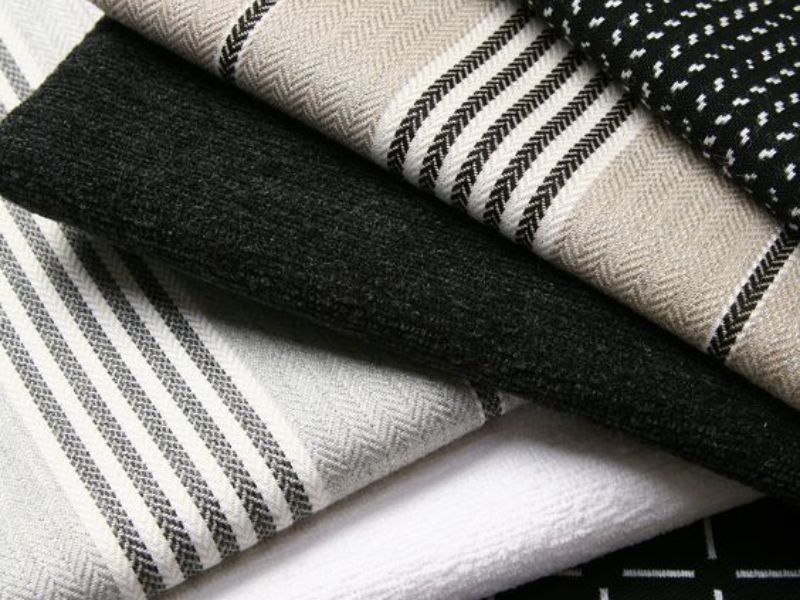
Felt of high quality typically possesses excellent elasticity, indicating its ability to stretch and bounce back without losing its original shape.
Check fabric properties
Felt is a type of fabric that is produced using natural fibers and animal hair. As a result, it possesses certain traits that are commonly associated with softness and smoothness. When determining the quality of felt, it is important to examine the fabric fibers and check for any signs of splitting or breaking. If the fibers are split, it indicates that the fabric is of poor quality.
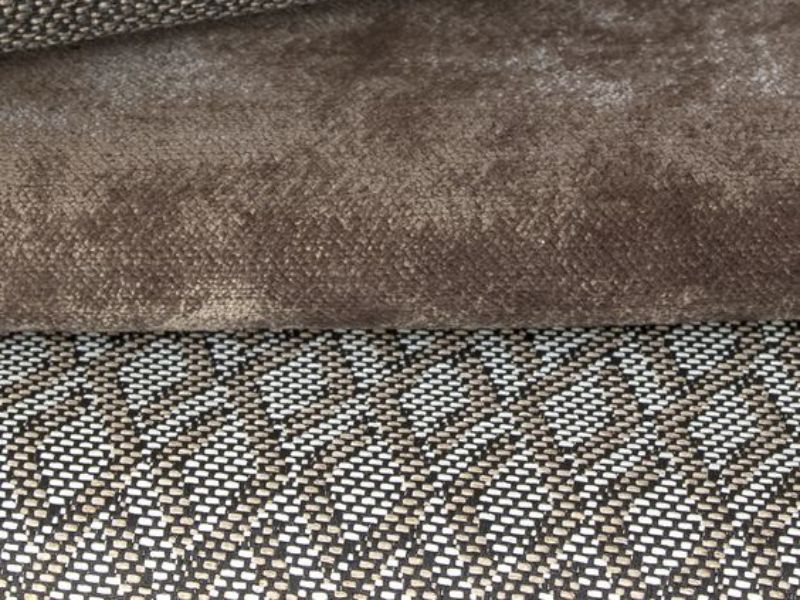
Felt fabric is known for its soft texture and smooth surface.
Furthermore, it is important to carefully examine the fabric surface for any minuscule fabric particles, as this is a rare occurrence in high quality fabrics. Moreover, seeking guidance from individuals with previous experience in the garment industry can also provide valuable insights and further assistance.
Here are some simple steps to effectively preserve felt fabric.
Before washing, it is important to refer to the product label to ensure you follow the correct washing and storage instructions. When it comes to washing felt, there are a few key points to keep in mind. Felt can be washed either by hand or in a washing machine. However, it is essential to pay attention to the following considerations:
- Do not wash felt at high temperatures, as this may cause the fabric to shrink or deform.
- Do not use harsh detergents, as this may cause the fabric to fade or discolor.
- Do not wring the fabric too hard, as this may cause pilling or damage.
- Dry felt in a cool place, avoid direct sunlight, let the fabric dry naturally.
- If the felt gets dirty, you should wipe it clean with a damp cloth, avoid letting the stain dry before washing.
- If the felt is fuzzy, you can use a silk comb to gently brush it out.
- If the felt gets moldy, you can soak the fabric in warm water mixed with vinegar or baking soda for about 30 minutes, then wash it again with water.
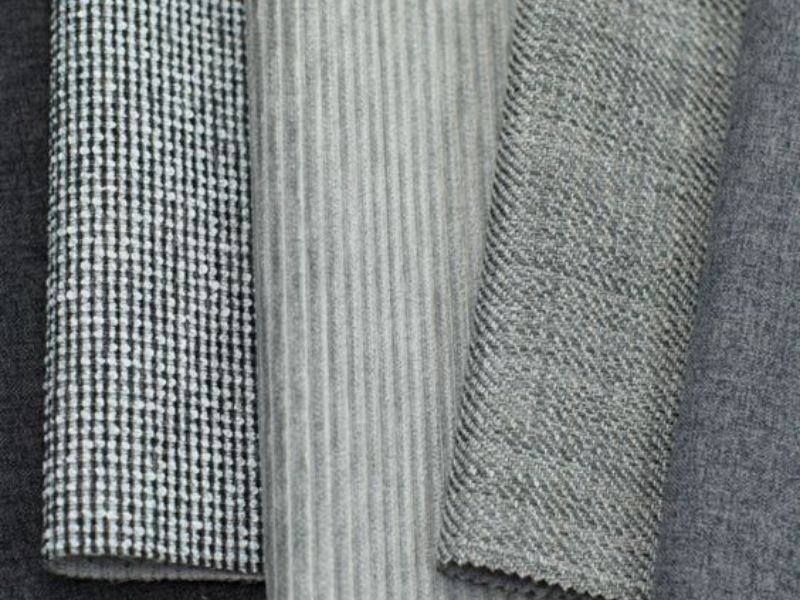
It is important to avoid washing felt at high temperatures.
Once you have finished washing the felt, it is important to store it in a dry and cool environment, ensuring that it is kept away from any moisture. To further safeguard against moisture, consider using desiccant bags or activated carbon. When it comes to drying felt products, it is advisable to opt for sturdy hangers made of thick wood or with padding. This will ensure that the hangers can support the weight of the felt items without causing any damage.
Epilogue
The Fashion Bandung website has recently provided an informative answer to the question, “What is felt fabric?” They have not only defined what felt fabric is, but have also highlighted its unique characteristics, advantages, and disadvantages. This comprehensive article aims to give readers a clear understanding of this luxurious material. For individuals who are interested in felt, this article serves as a valuable reference. It is recommended to stay updated with Fashion Bandung for more fashion trends and insights.
Welcome to our men’s fashion collection, where you can find high-quality clothing and accessories that will elevate your style. We take pride in offering a wide range of fashionable items that are designed to meet the needs and preferences of modern men. Our collection includes stylish clothing pieces, such as shirts, pants, jackets, and suits, crafted from premium materials to ensure both comfort and durability. Additionally, we offer a variety of accessories, including ties, belts, shoes, and bags, to complement your outfit and add a touch of sophistication. Explore our fashion selection for men and discover the perfect pieces to enhance your wardrobe and express your personal style.
To view additional content, please continue reading below:

